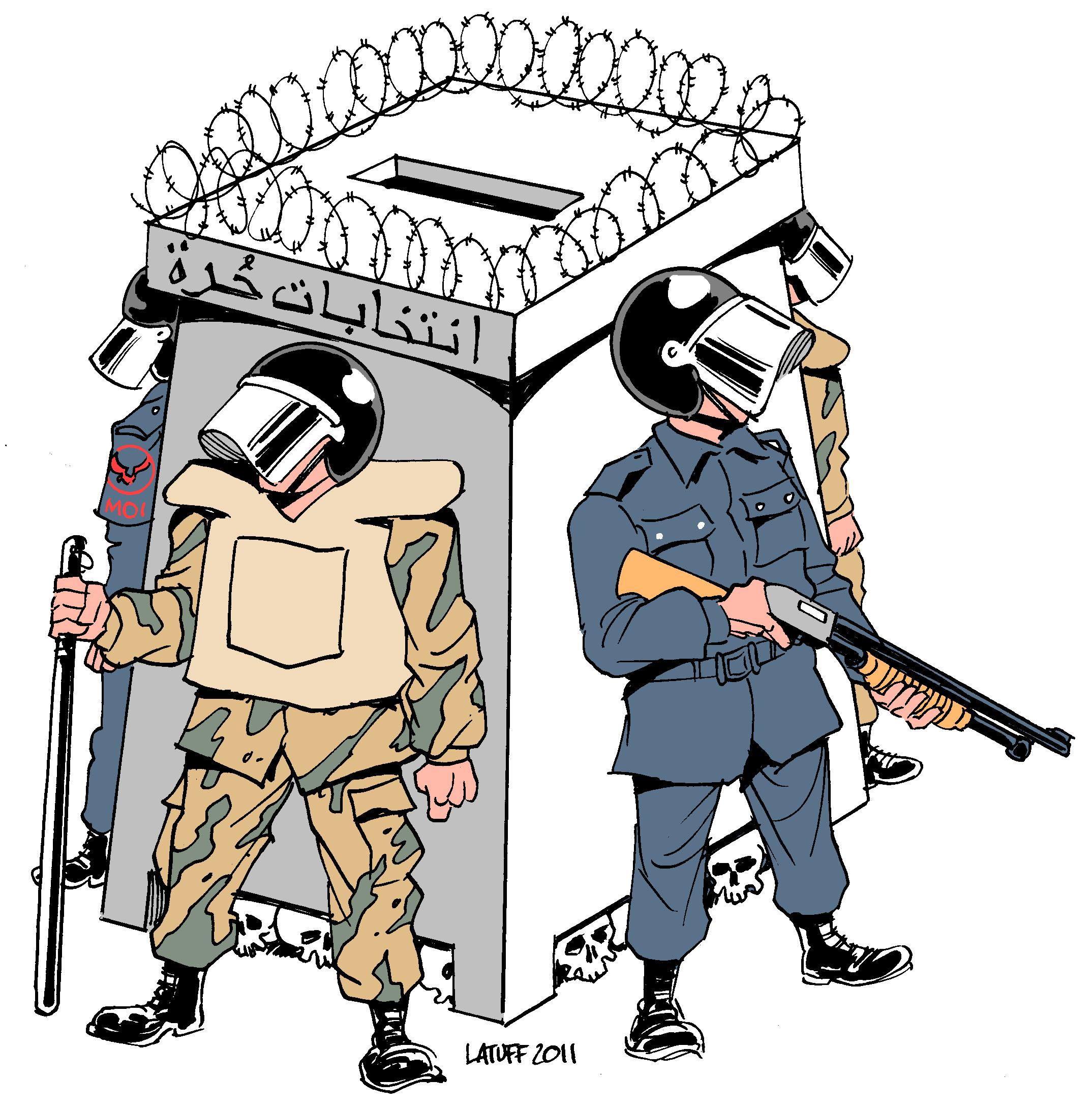Carlos Latuff is a Brazilian cartoonist. Cf. “As with Morocco, with the outcome largely predictable, the most interesting aspect of the results will not be the allocation of seats but the turnout. SCAF will be hoping for a high participation rate as evidence of popular endorsement of its transitional role” (James Asfa, “Democrats Against Elections: Morocco and Egypt,” Think Africa Press, 28 November 2011); “Ambassador Patterson: ‘The message is: Go out and vote. Go out and vote.’ #egyelections” (US Embassy Cairo, 28 November 2011); “The voting was mostly free for a parliament that isn’t” (Mostafa Hussein, 28 November 2011); “#Egypt‘s elections sort of feel like a Muslim Brotherhood coming out party” (Shadi Hamid, 28 November 2011); “As is well known, ‘elections’ in Egypt, as elsewhere in the world, are not the best way to establish democracy but often are the best way to set a limit to democratic progress” (Samir Amin, “Elections versus Democracy,” MRZine, 17 July 2011); “I think that the reason for the failure of electoral democracy to produce real change is not hard to find: all hitherto existing societies have been based on a dual system of exploitation of labor (in various forms) and of concentration of the state’s powers on behalf of the ruling class. This fundamental reality results in a relative ‘depoliticization/disacculturation’ of very large segments of society. And this result, broadly designed and implemented to fulfill the systemic function expected of it, is simultaneously the condition for reproduction of the system without changes other than those it can control and absorb — the condition of its stability. What is called the ‘grassroots,’ so to speak, signifies a country in deep slumber. Elections by universal suffrage under these conditions are guaranteed to produce a sure victory for conservatism, albeit sometimes a ‘reformist’ conservatism. . . . So should we give up on elections? Not at all. But how to bring together new, rich, inventive forms of democratization through which elections can be used in a way other than is conceived by the conservative forces? Such is the challenge” (Samir Amin, “The Democratic Fraud and the Universalist Alternative,” Monthly Review, October 2011).
| Print

